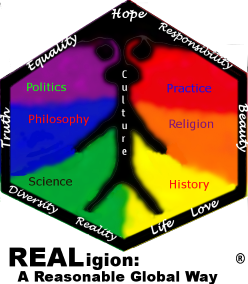
|
|
|
|
Click 'More' for more detail, |
|
User ID: Not Logged In L= EN/EN/ D= 'Dtop' S= 'ReasonableWay.org' A= 'www.ReasonableWay.org' R= 'http://reasonableway.org/EN/PI_AU_Submission_Religious_Discrimination_Bill_20200126.php' |
|
Go Back
Previous
Home
Presentations
Feedback
Branches
Quick Tour
Next |
Submission to the Australian Government
On its proposed Religious Discrimination Bill
Version 1.0 January 2020 Previous Version
Our submission, on the Australian Government’s 2020 proposed a new Religious Discrimination bill, had three main points:
● A significant concern with the current draft bill is its limited definition of religious belief or activity. We offer a refinement to the draft definition.
● The draft does not define which beliefs or activities are religious and hence covered by the legislation. We offer a definition of religion that takes into account past legal decisions and actual religious practice.
● We believe there is no need for an act to protect religion, and indeed it could be divisive and harm our democracy, but we present these comments in an attempt to improve the bill in case it is passed.
See the full submission on the draft bill here.
Defining Religious Belief of Activity
The bill tries to protect non-religious beliefs and behaviour as well as religious beliefs and behaviour, consistent with international conventions and Australian High Court rulings on religious freedom.
With respect to protecting non-religious beliefs or activity the current draft only addresses omissions: not holding a religious belief; or not engaging in, or refusing to engage in, lawful religious activity.
It does not cover actively holding a belief or engaging in actions contrary or inconsistent with religious beliefs or activities, ie behaving in a lawful manner that is nevertheless contrary to a religious practice. We think this needs to be addressed.
Defining Religion Itself
Acknowledging complexities and risks in attempting to define religion, we must respond to the reality that, as in many liberal democracies, government agencies, officials and the courts are already required even now to determine which bodies are religious, under various state and federal Acts.
Parliament should not take the cop out approach and leave it to the Courts or Officials to define what religion means.
We rather boldly propose to go where few have gone before.
We propose the following definition of religion, to ensure that Parliament provides guidance to officials the courts in their determinations of what is a religious body or religious belief or activity.
a religion is a sincere attempt by a body or group of individuals to address humanity’s ultimate concerns, or life’s meaning and purpose, or ultimately how we should live, which generally includes:
a) a worldview, namely a set of beliefs about the nature of reality (which may or may not invoke supernatural beings, things or principles);
b) an associated set of moral values or ideals; and
c) a consequential code of conduct;
(however clear, obscure, absurd, ambiguous, novel, rational or inconsistent each of these may be),
that requires of its adherents a degree of commitment or faith (however minimal)
and it is sufficient to establish most of these criteria but in some cases that may not be necessary.
● This definition is consistent with the primary definition from the Macquarie dictionary.
● It provides more current and informed guidance to officials and judges than the Scientology case.
● It is sufficient to include Atheistic religions, such as various Hindu, Buddhist, Jewish and Christian branches or adherents.
● It includes traditional world religions and indigenous religions.
● It excludes a relatively simple set of scientific beliefs as well as academic philosophical speculations about ethics or the nature of the good.
● It avoids the superficial trappings of religion which the High Court rejected as signs of religion.
● It avoids telling the religious what the contents of their religious beliefs must be like.
● It is flexible enough to cover emerging religions by addressing the purpose or function of religion rather than attempting to specify the contents of an emerging religion.
See the full submission on the draft bill here.
|
Go Back » Press (control) right, or click: Quick Tour Next |
Members can tell us (publicly) what they think of this page. How can we improve it? Enter your comments.
Anyone can tell us (privately) what they think directly by email: click on 'Feedback' below.
About to connect to database to show or hide.